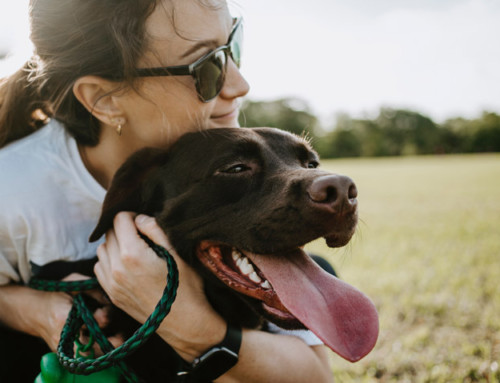Many pet parents wonder if dog depression is actually a thing. Well, according to the experts, pets can absolutely suffer from depression.
Thankfully, there are actions pet owners can take to help prevent dog depression and address the situation if it should arise. Is your dog looking a bit sad? Here are a few things to know about depression in dogs.
Signs of dog depression
Could your four-legged friend be depressed? Recognising the signs of dog depression is the first step in taking action and helping your fur pal return to his happy former self. Here are some signs to watch out for.
- Your dog may become withdrawn
- His eating habits may change, such as losing interest in food
- Sleeping patterns can change. For example, he may sleep more
- Your fur pal may become unengaged and lose interest in things he once loved, such as going for walks or having cuddles
- Your dog may lick or chew his paws, which can indicate emotional issues
- He may have a tendency to hide away
These are just some of the signs that may indicate your dog is depressed. However, it’s important not to assume. If your dog is acting unusually or displaying any of the symptoms mentioned above, seek the advice of your local vet.
What causes depression in dogs?
There are many causes of depression in dogs. Identifying the underlying cause will help you address the issue and get your pooch back on the road to recovery. Potential causes of dog depression include:
Illness or disease —Physical illness can cause dog depression. Of course, if you suspect a health condition may be the underlying cause, it’s important to take your dog to see the vet.
Sadness—Dogs can suffer from grief. It may be caused by the death of its owner, or perhaps his fur companion has passed away. Nonetheless, sadness can trigger the symptoms of depression.
Changes to routine or environment—A big storm, moving to a new house, or perhaps you are no longer working from home; these are all changes that can make a typically happy dog unhappy.
Separation anxiety—This is a common cause of depression in dogs. It can also be quite common. It can be brought on particularly when an owner who spends a lot of time at home suddenly spends more time away from the home.
Fear—Your dog may be fearful of a particular sound, a person or another animal. I know my dog fears Calvin the cockatoo who lives a couple of houses up from ours. When Calvin squawks, my Border Terrier retreats. He comes and hides behind my legs and shakes, or goes to lie down in my walk-in cupboard.
Managing dog depression
Animal behaviourist Dr Jo Righetti explains that veterinary medication may be required to start treatment. However, other potential remedies for depression in dogs may include:
- Complementary therapies (these can be prescribed by a vet)
- Stress-relieving scents such as lavender
- Rescue Remedy (available from pharmacists and major supermarkets)
- Adaptil
However, by understanding the underlying cause of depressive symptoms owners may be able to make changes to address the issue. For example, if a generally quiet house all of a sudden becomes a noisy or stressful environment the owner may be able to make changes to solve the problem.
In some cases, it might even be the owner’s own stress or anxiety that causes their pet to feel out of sorts.
Have you ever dealt with dog depression?
Information sources:
- Warning signs of dog depression. October 2019. Cesar’s Way. Accessed via: https://www.cesarsway.com/warning-signs-of-dog-depression/
- Mifflin K. Dogs and depression. The Spruce Pets. Accessed via: https://www.thesprucepets.com/







Leave A Comment